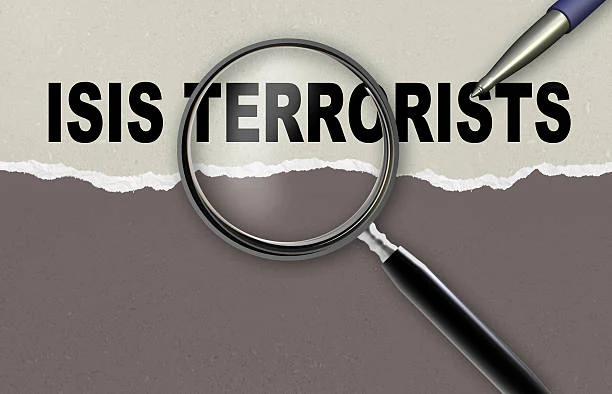Terrorism
and extremist ideologies continue to pose a significant threat to societies
around the world. From the September 11 attacks in 2001 to the recent wave of
terrorist attacks in Europe and other parts of the world, the threat of
terrorism and extremist violence has remained a constant presence in the global
security landscape. The ongoing threat of terrorism and extremism is driven by
a range of factors, including social, economic, and political grievances, as
well as the spread of extremist propaganda and recruitment via social media and
other online platforms.
This
article aims to provide a comprehensive overview of the ongoing threat of
terrorism and extremist ideologies, exploring the different types of extremism,
the factors that contribute to the rise of terrorism and extremism, and the
challenges of countering this threat. By highlighting recent examples of
terrorist attacks and examining the trends in global terrorism, we can gain a
better understanding of the scope and nature of this problem.
Ultimately, this article argues that effective strategies for countering terrorism and extremism must be multifaceted and comprehensive, addressing the root causes of extremism and terrorism, while also focusing on the development of community-based programs, law enforcement efforts, and international cooperation. Only by working together to address this complex and multifaceted problem can we hope to reduce the threat of terrorism and create a safer and more stable world for all.
Understanding
Terrorism and Extremism:
Terrorism
and extremism are two interrelated but distinct phenomena. While terrorism
refers to the use of violence and intimidation in pursuit of political or
ideological goals, extremism refers to holding extreme views or beliefs that
are outside of the mainstream. While not all extremists resort to violence,
extremist beliefs can create an environment in which terrorism is more likely
to occur.
There
are several different types of extremist ideologies that can lead to terrorism,
including religious extremism, far-right extremism, and others. Religious
extremism can take many forms, from Islamist terrorism to far-right Christian
extremism. Far-right extremism often involves a focus on white supremacist or
anti-immigrant views, and has been on the rise in recent years.
There
are many different terrorist groups and organizations around the world, each
with their own ideologies and goals. Some of the most well-known include Al
Qaeda, ISIS, Boko Haram, and the Taliban, but there are many others that are
active in different regions of the world.
Understanding terrorism and extremism is important because it helps us to identify the root causes of these problems and develop effective strategies for countering them. By understanding the different types of extremist ideologies and terrorist groups, we can better assess the threat they pose and develop targeted strategies for countering their activities.
Factors
Contributing to Terrorism and Extremism:
Terrorism
and extremism are complex phenomena that arise from a range of social,
economic, and political factors. Some of the key factors that contribute to the
rise of terrorism and extremism include:
Socioeconomic
Factors: Poverty,
inequality, unemployment, and lack of access to education can create a sense of
hopelessness and desperation among marginalized communities, making them more
vulnerable to extremist ideologies. When individuals feel disenfranchised and
marginalized, they may be more likely to turn to extremist groups as a means of
addressing their grievances.
Political Factors: Political instability, authoritarianism, corruption, and human rights abuses can also contribute to the rise of extremism and terrorism. In some cases, extremist groups may emerge in response to government repression or perceived injustices.
Religious
Factors: Religious
extremism is a common factor in many instances of terrorism and violence.
Religious extremism can take many forms, from Islamist terrorism to far-right
Christian extremism.
Online
Propaganda: The internet and
social media have played a major role in the spread of extremist propaganda and
recruitment. Extremist groups have used social media to reach out to vulnerable
individuals and spread their message of hate and violence.
Foreign
Policy: Foreign policy
and military interventions can also contribute to the rise of anti-Western
sentiment and extremist ideologies. In some cases, foreign interventions may be
seen as a violation of national sovereignty and may lead to a backlash against
the intervening countries.
Addressing the root causes of terrorism and extremism is critical to developing effective strategies for countering these threats. This requires a multifaceted approach that addresses the social, economic, and political factors that contribute to the rise of extremism and terrorism. It also requires a greater focus on international cooperation and the development of community-based programs that promote tolerance, respect for diversity, and non-violent conflict resolution.
The Ongoing
Threat of Terrorism and Extremist Ideologies:
Despite
the efforts of governments and law enforcement agencies around the world, the
threat of terrorism and extremist ideologies remains a significant challenge.
Recent years have seen a rise in far-right extremism and white supremacist
violence, as well as ongoing attacks by Islamist extremist groups such as ISIS
and Al Qaeda.
One
of the challenges of countering terrorism and extremism is the constantly
evolving nature of the threat. Terrorist groups are adept at adapting to
changing circumstances, and new groups can emerge quickly, making it difficult
for law enforcement agencies to keep up.
The use of the internet and social media has also made it easier for extremist groups to spread their message and recruit new members. The anonymity of the internet can make it difficult to track down individuals who are involved in extremist activities, while the ease of access to extremist propaganda means that vulnerable individuals can be radicalized from anywhere in the world.
In
addition to the direct impact of terrorist attacks, there are also broader
societal impacts of terrorism and extremism. These can include increased levels
of fear and anxiety among the public, as well as a loss of trust in government
and law enforcement agencies. Terrorism and extremism can also have a
destabilizing effect on societies, leading to increased political polarization
and social division.
Addressing
the ongoing threat of terrorism and extremist ideologies requires a coordinated
and comprehensive approach that addresses the root causes of these problems.
This includes efforts to address socioeconomic inequality, political
instability, and human rights abuses, as well as a greater focus on countering
extremist propaganda and recruitment via social media and other online platforms.
At
the same time, it is important to maintain a robust and effective law
enforcement response to terrorism and extremism. This requires ongoing efforts
to track and disrupt terrorist networks, as well as targeted efforts to prevent
individuals from becoming radicalized and joining extremist groups.
Ultimately, the ongoing threat of terrorism and extremist ideologies requires a multifaceted and coordinated response from governments, law enforcement agencies, civil society organizations, and the public. Only by working together can we hope to reduce the threat of terrorism and create a safer and more stable world for all.
Strategies
for Countering Terrorism and Extremism:
Countering
terrorism and extremism requires a multifaceted approach that addresses the
root causes of these problems, as well as a robust law enforcement response.
Some of the key strategies for countering terrorism and extremism include:
Addressing
Socioeconomic Factors: Addressing
socioeconomic inequality, poverty, and lack of access to education can help
reduce the appeal of extremist ideologies. This requires a comprehensive
approach that addresses issues such as job creation, economic growth, and
social welfare programs.
Promoting
Tolerance and Inclusion:
Promoting tolerance, respect for diversity, and inclusion is critical in
countering extremism. This requires efforts to promote interfaith dialogue,
cultural exchange programs, and community-building initiatives.
Disrupting Terrorist Networks: Disrupting terrorist networks requires ongoing efforts to track and monitor these groups, as well as targeted law enforcement actions to disrupt their activities. This includes efforts to disrupt the financing of terrorist activities and prevent the movement of individuals and resources across borders.
Countering
Extremist Propaganda: Countering
extremist propaganda requires a multi-pronged approach that includes both
online and offline efforts. This includes efforts to counter extremist
narratives with positive messages of tolerance and inclusion, as well as
targeted efforts to disrupt extremist social media and online recruitment
activities.
Strengthening
International Cooperation:
Strengthening international cooperation is critical in countering terrorism and
extremism. This requires cooperation among law enforcement agencies,
intelligence services, and other relevant actors, as well as efforts to promote
international norms and standards around counterterrorism and human rights.
Preventing
Radicalization: Preventing
radicalization requires targeted efforts to identify individuals who may be at
risk of becoming radicalized, as well as efforts to provide support and
assistance to those who are already involved in extremist activities. This
includes community-based programs that promote positive youth development,
mental health services, and education programs.
Ultimately, countering terrorism and extremism requires a coordinated and comprehensive approach that addresses the root causes of these problems, as well as a strong law enforcement response. By working together, we can hope to reduce the threat of terrorism and create a safer and more stable world for all.
Conclusion:
The
ongoing threat of terrorism and extremist ideologies remains a significant
challenge for governments, law enforcement agencies, and societies around the
world. Despite efforts to address the root causes of these problems and disrupt
terrorist networks, the constantly evolving nature of the threat means that we
must remain vigilant and adaptable in our response.
To
counter terrorism and extremism effectively, it is essential to take a
multifaceted approach that addresses the root causes of these problems, as well
as a robust law enforcement response. This includes efforts to address
socioeconomic inequality, political instability, and human rights abuses, as
well as a greater focus on countering extremist propaganda and recruitment via
social media and other online platforms.
In
addition to these efforts, it is essential to promote tolerance, respect for
diversity, and inclusion in our societies. By promoting positive messages of
tolerance and inclusion, we can reduce the appeal of extremist ideologies and
create a more cohesive and stable society.
Ultimately,
countering terrorism and extremism requires a coordinated and comprehensive
approach that involves governments, law enforcement agencies, civil society
organizations, and the public. By working together, we can hope to reduce the
threat of terrorism and create a safer and more stable world for all.










0 Comments